
Allied Health courses in Wodonga
Course providers in Wodonga
The following providers offer Allied Health courses in Wodonga.







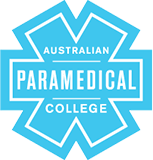

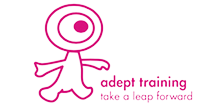
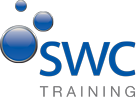
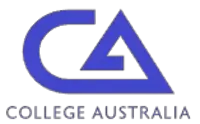










































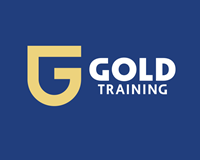











Career Pathfinder
Skills shortages + AI Exposure
Discover in-demand careers and understand how each role may be impacted by AI and automation.
- See in-demand occupations across Australia
- Check AI Exposure ratings
- Compare training duration and average income
Common questions
Occupational therapists help patients perform tasks in daily life, while physiotherapists help patients improve their movement, strength and function. The term occupation refers to everyday life tasks, while physiotherapy refers to physical therapy. Both are science-based allied health roles that aim to improve quality of life through prevention, maintenance and treatment.
 Stephen Charlton
Stephen Charlton
You can become qualified to work as an occupational therapist by completing one of the following degrees, depending on your educational pathway:
- Master of Occupational Therapy (postgraduate degree)
Average duration: 24 months - Bachelor of Occupational Therapy (Honours)
Average duration: 4 years - Bachelor of Occupational Therapy
Average duration: 4 years
 Stephen Charlton
Stephen Charlton
You can become qualified to work as a physiotherapist by completing one of the following degrees, depending on your educational pathway:
- Doctor of Physiotherapy (postgraduate degree)
Average duration: 3 years - Master of Physiotherapy (postgraduate degree)
Average duration: 24 months - Bachelor of Physiotherapy (Honours)
Average duration: 4 years - Bachelor of Physiotherapy
Average duration: 4 years
 Stephen Charlton
Stephen Charlton
Yes, you need to complete an accredited degree to work legally as an occupational therapist or physiotherapist in Australia. The two core pathways are completing a bachelor’s degree or a postgraduate degree. The Occupational Therapy Council of Australia and Australian Physiotherapy Council are responsible for accrediting such courses.
 Stephen Charlton
Stephen Charlton
Yes, overseas-qualified practitioners can work in Australia by registering with the Occupational Therapy Board of Australia or Physiotherapy Board of Australia. Practitioners who are currently registered with the Occupational Therapy Board of New Zealand or Physiotherapy Board of New Zealand can apply directly for Australian registration. Other overseas-qualified practitioners have to fulfil the requirements listed on the relevant webpages of the Occupational Therapy Board of Australia and Physiotherapy Board of Australia.
 Stephen Charlton
Stephen Charlton
If you have already completed an approved degree in a different discipline, you can gain an accredited postgraduate degree to become qualified to work as an occupational therapist or physiotherapist. Examples of such degrees are a Master of Occupational Therapy, Master of Physiotherapy and Doctor of Physiotherapy. Postgraduate degrees in these fields may have additional entry requirements, including but not limited to health-related prerequisite subjects.
 Stephen Charlton
Stephen Charlton
In some cases, completing vocational education and training (VET) in a related discipline can allow you to meet the entry requirements for a bachelor’s degree in these fields. Entry requirements vary between educational providers. Some providers offer a VET entry pathway with a minimum of a Certificate IV, but others require a minimum of a diploma or advanced diploma. Some providers do not offer a VET pathway for these courses at all. Therefore, it’s wise to confirm the entry requirements for your desired bachelor’s degree before starting a VET course.
 Stephen Charlton
Stephen Charlton
In addition to completing an accredited degree, occupational therapists and physiotherapists will need to register with the Occupational Therapy Board of Australia or Physiotherapy Board of Australia to work in Australia. The Australian Health Practitioner Regulation Agency (AHPRA) administers practitioner registration on behalf of these boards. There are different requirements to gain registration for Australian-qualified practitioners, New Zealand-registered practitioners, and other overseas-qualified practitioners.
 Stephen Charlton
Stephen Charlton
Career paths for these professions include independent contracting, starting a practice, working in community care, paediatrics, mental health, rehabilitation, disability, medical or aged care sectors).
 Stephen Charlton
Stephen Charlton
Jobs and Skills Australia reports that the median full-time weekly earnings for occupational therapists and physiotherapists in 2024 are $1,526 and $1,710, respectively. These figures can be contrasted with Australian workers of all occupations, who earn a median full-time weekly income of $1,697.
 Stephen Charlton
Stephen Charlton
There is a significant demand for occupational therapists across Australia. Jobs and Skills Australia’s Occupation Shortage List indicates that the labour market had a shortage of occupational therapists across all states and territories from 2022 to 2024.
 Stephen Charlton
Stephen Charlton
There is substantial demand for physiotherapists in Australia. Jobs and Skills Australia’s Occupation Shortage List indicates that the labour market experienced a shortage of occupational therapists and physiotherapists in most states and territories from 2022 to 2024.
 Stephen Charlton
Stephen Charlton
Working as an occupational therapist or physiotherapist comes with the satisfaction of directly helping to improve patients’ quality of life. Furthermore, the job market is promising, as Jobs and Skills Australia reports there is significant labour market demand for both professions. The future outlook is also positive, as Jobs and Skills Australia reports that the annual employment growth in 2024 for occupational therapists and physiotherapists is 2,200 and 4,100, respectively.
 Stephen Charlton
Stephen Charlton
Further reading


What can you do with a Certificate IV in Allied Health Assistance (Physiotherapy)?
3rd March 2022
What can you do with a Certificate III in Allied Health Assistance?
8th January 2020All courses
- HLT37315 Certificate III in Health Administration
- HLT33021 Certificate III in Allied Health Assistance
- HLT47321 Certificate IV in Health Administration
- HLT47715 Certificate IV in Medical Practice Assisting
- HLT33115 Certificate III in Health Services Assistance
- BSB30120 Certificate III in Business (Medical Administration)
- CHC43315 Certificate IV in Mental Health
- CHC53315 Diploma of Mental Health
- HLT52021 Diploma of Remedial Massage
- HLT41120 Certificate IV in Health Care
- HLT54121 Diploma of Nursing
- 10974NAT Diploma of Clinical Hypnotherapy
- Bachelor of Occupational Therapy
- CHCSS00111 Problem Gambling Skill Set
- Biomedical Science (Exercise and Health)
- HLT43021 Certificate IV in Allied Health Assistance (Physiotherapy and Occupational Therapy Focus)
- Graduate Certificate in Health Administration
- Bachelor of Biomedical Science (Health)
- HLT23215 Certificate II in Health Support Services (Health Administration)
- HLT32912 Certificate III in Health Administration
- Graduate Certificate in Global Health
- Bachelor of Physical Education and Sport Science
- Bachelor of Physiotherapy (Honours)
More about Allied Health courses
Explore the diverse range of Allied Health Courses in Wodonga designed for individuals with prior experience or qualifications in the healthcare sector. Wodonga, a vibrant city located in the picturesque North East of Victoria, is home to several training providers offering vocational education and higher education courses to support your career advancement in this essential field. With a total of five specialised courses available, students can easily find the right fit for their professional development.
One of the standout options is the Certificate IV in Mental Health CHC43315, available through GOTAFE. This course equips learners with the skills and knowledge needed to provide support to individuals with mental health issues. Students will benefit from face-to-face learning opportunities with experienced trainers at GOTAFE, ensuring a rich and interactive educational experience right in the heart of Wodonga.
Additionally, the Certificate IV in Allied Health Assistance HLT43021 is ideal for those interested in supporting health professionals in their daily practices. This course prepares students for a rewarding role in the Allied Health sector, enhancing their practical skills and understanding of patient care. With multiple campus-based providers in the area, students can enjoy the convenience of local study options.
For those seeking to advance their education further, the Bachelor of Occupational Therapy and the Bachelor of Nursing programs are excellent choices for developing a comprehensive understanding of health practice. Moreover, aspiring physiotherapists can enrol in the Bachelor of Physiotherapy, offered by Charles Sturt University (CSU), with options for flexible study arrangements that fit busy lifestyles.
Whether you are looking to enhance your professional skills or embark on a new career in the Allied Health field, Wodonga offers a wealth of opportunities. The training providers in this area, including GOTAFE and CSU, are dedicated to supporting students through quality education and resources. Don’t miss the chance to advance your career—explore the Allied Health courses available in Wodonga today and take the first step towards a fulfilling future in healthcare.
